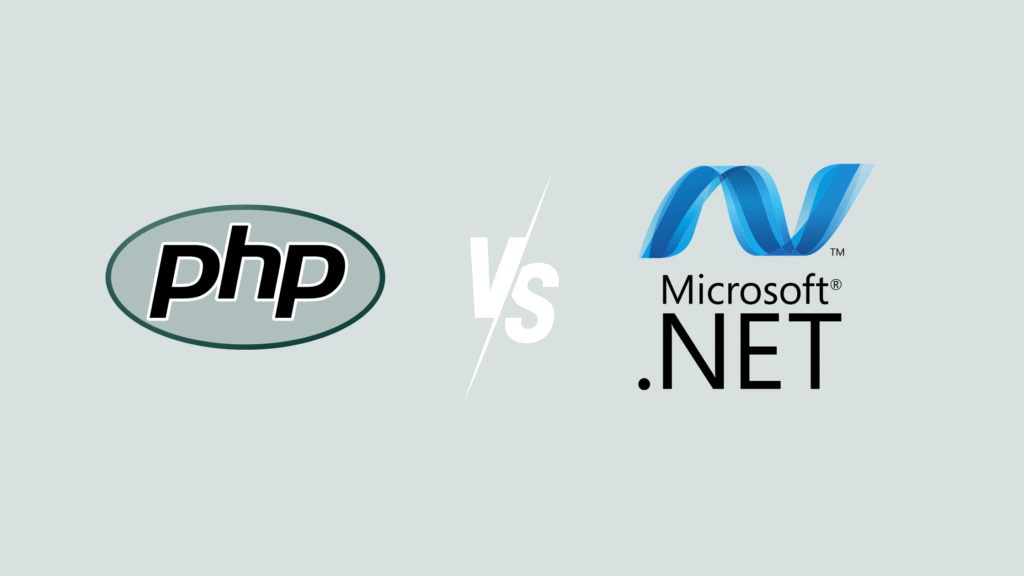In the fast-paced world of software development, PHP and ASP.NET have become two of the most trusted technologies for building modern web applications and services. Whether you’re seeking a cost-effective solution or a highly secure enterprise-grade platform, both frameworks offer unique strengths tailored to different business needs.
For companies exploring Offshore Software Development, leveraging the expertise of global teams in PHP and ASP.NET can be a game-changer bringing in cost savings, scalability, and specialized development experience. In this guide, we’ll explore the strengths of both frameworks, compare their features and benefits, and help you determine which is best suited for your next project.
What is ASP.NET?
ASP.NET, developed by Microsoft, is a premium framework designed for building dynamic, scalable, and powerful web applications. It requires a paid license but offers enterprise-grade solutions with robust security, advanced functionalities, and seamless integration with Microsoft’s ecosystem.
ASP.NET applications can be deployed across Windows, Linux, macOS, and Docker environments, offering flexibility and extensive deployment options.
Key Features of ASP.NET
- Security First: Built-in authentication protocols protect against threats like cross-site scripting (XSS) and cross-site request forgery (CSRF). It supports multi-factor authentication and third-party authentication using services like Google and X.
- Developer Community & Hosting: Over 100,000 developer contributions, along with free hosting through Azure cloud services.
- High Performance: Recognized among the fastest frameworks with optimized performance through JIT compilation.
- Cross-Platform Support: Compatible with all major operating systems and supports asynchronous programming, web sockets, caching, and more.
Benefits of ASP.NET
- Object-Oriented Architecture: Promotes reusable, manageable, and efficient code structures.
- Enterprise Integration: Easily integrates with Azure, SQL Server, Microsoft Office, and third-party APIs.
- Scalability & Security: Built-in role-based security, automatic memory management, and MVC architecture improve reliability and security.
- Suitable for Offshore Software Development: Many enterprises partner with offshore teams specializing in ASP.NET to build long-term, secure, and scalable solutions.
What is PHP?
PHP is a popular open-source scripting language that focuses on simplicity, speed, and security. It’s widely used by startups and small businesses due to its flexibility and cost-effectiveness. For organizations exploring Offshore Software Development, working with a reputable PHP Web Development Company ensures fast development cycles, robust solutions, and maintenance-friendly architecture.
PHP is compatible with nearly all web servers and supports a range of databases, making it an ideal choice for web applications of varying complexity.
Key Features of PHP
- Database Compatibility: Works with SQLite, MySQL, Oracle, PostgreSQL, and more.
- Framework Support: Compatible with Zend Framework, CakePHP, and Laravel Web App Development Services, empowering developers to build structured and secure applications.
- CMS Support: Powers platforms like WordPress, Drupal, and Joomla.
- Built-in Functions: Includes tools for pattern matching, error handling, and parsing, with database-independent classes that prevent SQL injection attacks.
Benefits of PHP
- Free and Open-Source: Ideal for startups and businesses aiming to minimize costs.
- Beginner-Friendly: Easy to learn, with a supportive community and rich documentation.
- Flexible and Fast: Lightweight architecture enables rapid deployment and optimization.
- Security Enhancements: Offers extensions and libraries that help secure web applications.
- Preferred by PHP Web Development Companies: Many firms specialize in delivering scalable, secure, and high-performance PHP solutions tailored to client requirements.
- Laravel Web App Development Services: Frameworks like Laravel provide structure, security, and elegant syntax, making PHP even more developer-friendly and suitable for complex web applications.
PHP vs ASP.NET: A Side-by-Side Comparison
| Parameter | PHP | ASP.NET |
| Speed | Lightweight and fast | Optimized with JIT compilation but slower |
| Caching | Opcode caching for improved response | Server-side caching for scalability |
| Pricing | Free and open-source | Paid license required |
| Scalability | Needs libraries like Laravel for scaling | Built-in scalability features |
| Type | Server-side scripting language | Enterprise web framework by Microsoft |
| Support & Community | Smaller but supportive community | Large enterprise community and global reach |
| Security | Requires additional tools and libraries | Built-in security protocols |
| Customization | Highly customizable with libraries | Limited but feature-complete |
| Popularity | Powers 78.1% of websites globally | Powers 8.3% of websites globally |
Popular Websites Built Using PHP
- Facebook (Meta)
- Mailchimp
- Etsy
- Tumblr
- Wikipedia
- Slack
- Yahoo!
Popular Websites Built Using ASP.NET
- Microsoft
- Dell
- Wild Tangent
- Ancestry
- Taco Bell
- MarketWatch
When to Choose PHP or ASP.NET?
Choose PHP if
You’re aiming for a cost-effective, fast-paced development environment with quick deployment. PHP is ideal for startups, content-heavy websites, or apps with high traffic. Partnering with a trusted PHP Web Development Company or leveraging Laravel Web App Development Services can boost your development speed and application security.
Choose ASP.NET if
Your project requires long-term support, enterprise-grade security, and scalability. Many organizations prefer Offshore Software Development services that specialize in ASP.NET to build robust applications across industries like finance, healthcare, and logistics.
Final Thoughts
The choice between PHP and ASP.NET depends largely on your business requirements, budget, and project complexity. PHP stands out for its ease of use and cost-effectiveness, while ASP.NET offers unmatched security, scalability, and enterprise integration.
Many successful companies use a hybrid approach leveraging the speed of PHP during initial stages and the robustness of ASP.NET for long-term operations. Whatever path you choose, working with expert teams in Offshore Software Development, PHP Web Development, or Laravel Web App Development Services will ensure that your project is efficient, secure, and future-proof.



